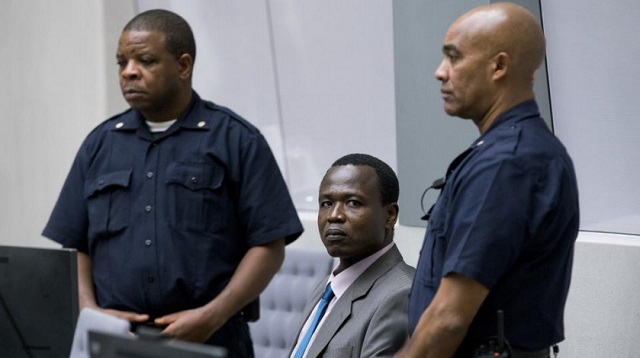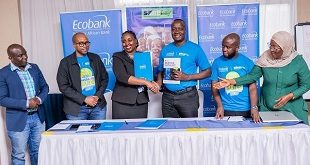
Kampala, Uganda | THE INDEPENDENT | The Acholi Cultural Institution has criticized the recent conviction of former Lord’s Resistance Army-LRA rebel commander Dominic Ongwen.
Ongwen who commanded the LRA’s Sinia Brigade was found guilty of 61 out of the 70 counts of war crimes and crimes against humanity for which he faced a trial before the International Criminal Court.
Ongwen was found guilty of leading attacks against the civilian population in Pajule IDP camp on October 10, 2003, Odek IDP camp on April 29, 2004, Lukodi IDP camp on May 19, 2004, and Abok IDP camps on June 29, 2004, resulting in murder, attempted murder, torture, enslavement, destruction of property, and conscripting children under the age of 15 into the Sinia brigade among other charges.
But Ambrose Olaa, the Prime Minister of Acholi Cultural Institution told Uganda Radio Network in an interview on Wednesday that the conviction contributes to a small fraction of what constitutes justice to the people of Acholi. Olaa notes that what transpired in Acholi sub-region exceeded what the ICC looked at. He says that the trial was based on a narrow timeframe, narrow geographical area, and narrow definition of the victims of the conflict.
However, the judges found that there was no evidence that supported the claim that Ongwen suffered from any mental disease or disorder during the period relevant to the charges or that he committed the crimes under any threats.
But Olaa notes that it’s hard to praise fairness in the judgement since it’s only tailored to focus on the aspect of the justice which the court was interested in but not the context of justice in a complex conflict that ravaged northern Uganda.
Olaa says that questions need to be asked on the outcome of the judgment basing on other factors that haven’t been achieved despite grave atrocities committed in the region. He says whereas the legal question could have been answered through the verdict, the cultural, sociological, economic, political questions and justice to the society remain disproportionate.
Former Northern Ugandan Diocese Bishop Rt Rev Nelson Onono-Onweng however differs on the judgement saying justice has finally been served to the victims of Ongwen’s led attacks. Bishop Onono-Onweng says the judgement was fair in all its aspects.
“They were fair to have that long period of time to walk the journey of justice. From here in Lukodi where locals were massacred, people including me are happy that he was convicted,” Bishop Onweng told URN in an interview. The prelate is among hundreds of victims of the LRA war within the region who welcomed the conviction of Ongwen and see it as a step towards healing.
During the course of Ongwen’s trial that commenced in December 2016, the Chamber heard from a large number of witnesses terrible accounts of the events and of the extreme suffering that the civilian population of Northern Uganda experienced.
Over the course of 234 hearings, the Office of the ICC Prosecutor presented a total of 109 witnesses and experts, the Defence team presented 63 witnesses and experts and 7 witnesses and experts were called by the legal representative of the victims. A total of 4095 victims were represented in the case.
The ICC has scheduled a sentencing hearing for the weeks of 12-16 April during which it will receive submissions on the appropriate sentence by the Prosecutor, the Defence for Dominic Ongwen and the legal representatives of the participating victims.
*****
URN
 The Independent Uganda: You get the Truth we Pay the Price
The Independent Uganda: You get the Truth we Pay the Price



